State Opera Vienna
- Opernring 1
1010 Wien
- Tickets unter
- +43 1 400 600
- office@viennaticket.at
The State Opera in Vienna is one of the leading opera houses in the world. The appearance of first class singers, the orchestra, which consists of members of the Vienna Philharmonic orchestra, as well as a good mix of "classical" and "modern" settings guarantees an enjoyable evening with opera or ballet.
-
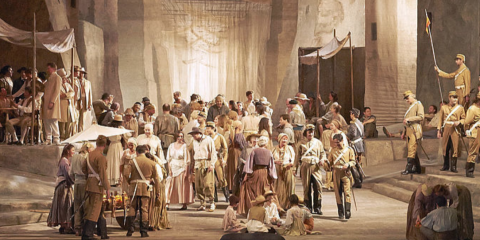 © Wiener Staatsoper GmbH / Michael PCarmen Opera by Georges Bizet State Opera Vienna - WienTue 03.Mar 2026 Mon 01.Jun 2026+ 6 more
© Wiener Staatsoper GmbH / Michael PCarmen Opera by Georges Bizet State Opera Vienna - WienTue 03.Mar 2026 Mon 01.Jun 2026+ 6 more -
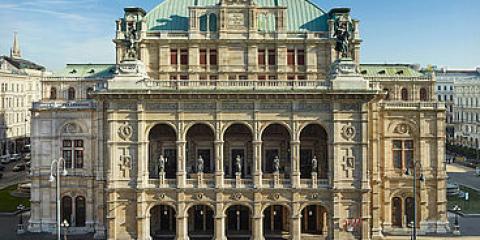 © PoehnNabucco Giuseppe Verdi State Opera Vienna - WienThu 05.Mar 2026 Sun 08.Mar 2026
© PoehnNabucco Giuseppe Verdi State Opera Vienna - WienThu 05.Mar 2026 Sun 08.Mar 2026 -
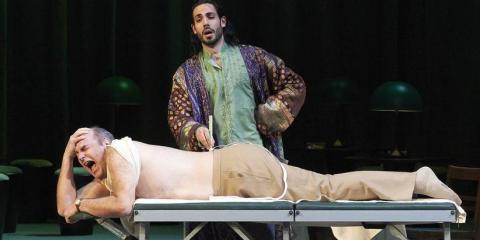 © Wiener Staatsoper GmbH / Michael PDon Pasquale Opera by Gaetano Donizetti State Opera Vienna - WienFri 06.Mar 2026 Wed 11.Mar 2026 Fri 13.Mar 2026
© Wiener Staatsoper GmbH / Michael PDon Pasquale Opera by Gaetano Donizetti State Opera Vienna - WienFri 06.Mar 2026 Wed 11.Mar 2026 Fri 13.Mar 2026 -
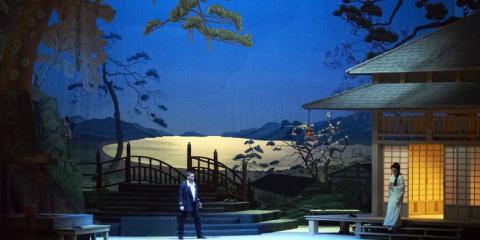 © Wiener Staatsoper GmbH/Michael PMadama Butterfly Opera by Giacomo Puccini State Opera Vienna - WienSat 07.Mar 2026 Tue 10.Mar 2026+ 4 more
© Wiener Staatsoper GmbH/Michael PMadama Butterfly Opera by Giacomo Puccini State Opera Vienna - WienSat 07.Mar 2026 Tue 10.Mar 2026+ 4 more -
 © PoehnLa Clemenza di Tito Opera by Wolfgang Amadeus Mozart State Opera Vienna - WienMon 09.Mar 2026 Thu 12.Mar 2026+ 6 more
© PoehnLa Clemenza di Tito Opera by Wolfgang Amadeus Mozart State Opera Vienna - WienMon 09.Mar 2026 Thu 12.Mar 2026+ 6 more -
 © PoehnLe Grand Macabre Opera by György Ligeti State Opera Vienna - WienSun 15.Mar 2026 Fri 20.Mar 2026+ 4 more
© PoehnLe Grand Macabre Opera by György Ligeti State Opera Vienna - WienSun 15.Mar 2026 Fri 20.Mar 2026+ 4 more -
 © PoehnMatinee to »Visionary Dances« State Opera Vienna - WienSun 22.Mar 2026
© PoehnMatinee to »Visionary Dances« State Opera Vienna - WienSun 22.Mar 2026 -
 © PoehnDie verkaufte Braut (Prodaná Nevěsta) State Opera Vienna - WienMon 23.Mar 2026 Thu 26.Mar 2026+ 4 more
© PoehnDie verkaufte Braut (Prodaná Nevěsta) State Opera Vienna - WienMon 23.Mar 2026 Thu 26.Mar 2026+ 4 more -
 © PoehnBallet: Visionary Dances Justin Peck / Wayne McGregor / Twyla Tharp State Opera Vienna - WienSat 28.Mar 2026 Mon 30.Mar 2026+ 9 more
© PoehnBallet: Visionary Dances Justin Peck / Wayne McGregor / Twyla Tharp State Opera Vienna - WienSat 28.Mar 2026 Mon 30.Mar 2026+ 9 more -
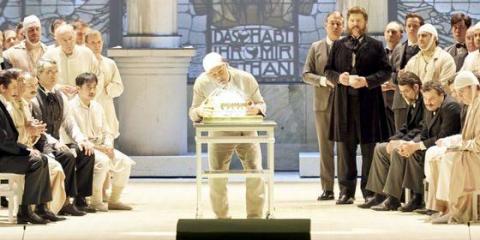 © Wiener Staatsoper GmbH / Michael PParsifal Opera by Richard Wagner State Opera Vienna - WienThu 02.Apr 2026 Sun 05.Apr 2026 Wed 08.Apr 2026
© Wiener Staatsoper GmbH / Michael PParsifal Opera by Richard Wagner State Opera Vienna - WienThu 02.Apr 2026 Sun 05.Apr 2026 Wed 08.Apr 2026 -
 © PoehnWozzeck Opera by Alban Berg State Opera Vienna - WienThu 09.Apr 2026 Sat 11.Apr 2026 Mon 13.Apr 2026
© PoehnWozzeck Opera by Alban Berg State Opera Vienna - WienThu 09.Apr 2026 Sat 11.Apr 2026 Mon 13.Apr 2026 -
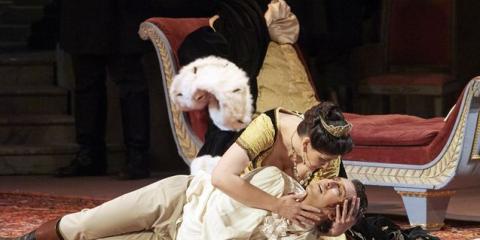 © Wiener Staatsoper GmbH/Michael PTosca Opera by Giacomo Puccini State Opera Vienna - WienSun 12.Apr 2026 Wed 15.Apr 2026+ 4 more
© Wiener Staatsoper GmbH/Michael PTosca Opera by Giacomo Puccini State Opera Vienna - WienSun 12.Apr 2026 Wed 15.Apr 2026+ 4 more -
 © PoehnSimon Boccanegra Opera by Giuseppe Verdi State Opera Vienna - WienThu 16.Apr 2026 Sun 19.Apr 2026+ 4 more
© PoehnSimon Boccanegra Opera by Giuseppe Verdi State Opera Vienna - WienThu 16.Apr 2026 Sun 19.Apr 2026+ 4 more -
 © PoehnDer fliegende Holländer Opera by Richard Wagner State Opera Vienna - WienWed 22.Apr 2026 Sat 25.Apr 2026+ 4 more
© PoehnDer fliegende Holländer Opera by Richard Wagner State Opera Vienna - WienWed 22.Apr 2026 Sat 25.Apr 2026+ 4 more -
 © PoehnBallet: Giselle State Opera Vienna - WienThu 23.Apr 2026 Sun 26.Apr 2026+ 6 more
© PoehnBallet: Giselle State Opera Vienna - WienThu 23.Apr 2026 Sun 26.Apr 2026+ 6 more -
 © PoehnSolo recital Michael Spyres State Opera Vienna - WienTue 28.Apr 2026
© PoehnSolo recital Michael Spyres State Opera Vienna - WienTue 28.Apr 2026 -
 © PoehnSalome Opera by Richard Strauss State Opera Vienna - WienFri 01.May 2026 Mon 04.May 2026+ 4 more
© PoehnSalome Opera by Richard Strauss State Opera Vienna - WienFri 01.May 2026 Mon 04.May 2026+ 4 more -
 © PoehnMatinee to Les Pêcheurs de perles State Opera Vienna - WienSun 03.May 2026
© PoehnMatinee to Les Pêcheurs de perles State Opera Vienna - WienSun 03.May 2026 -
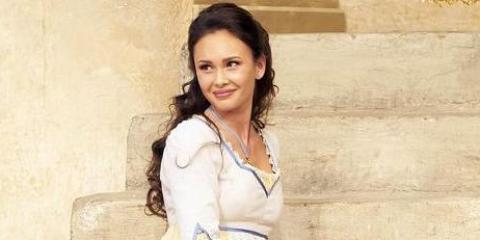 © Wiener Staatsoper GmbH / Michael PL'elisir d'amore Opera by Gaetano Donizetti State Opera Vienna - WienTue 05.May 2026 Thu 07.May 2026 Mon 11.May 2026
© Wiener Staatsoper GmbH / Michael PL'elisir d'amore Opera by Gaetano Donizetti State Opera Vienna - WienTue 05.May 2026 Thu 07.May 2026 Mon 11.May 2026 -
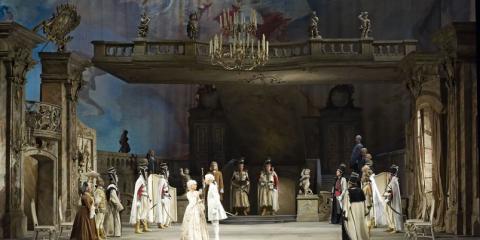 © Wiener Staatsoper GmbH/Michael PDer Rosenkavalier Opera by Richard Strauss State Opera Vienna - WienSat 09.May 2026 Tue 12.May 2026+ 4 more
© Wiener Staatsoper GmbH/Michael PDer Rosenkavalier Opera by Richard Strauss State Opera Vienna - WienSat 09.May 2026 Tue 12.May 2026+ 4 more
The “Wiener Staatsoper“ is without a doubt one of the most leading opera stages in the world. The building was finished in 1869 and opened with the premiere of “Don Giovanni” by Wolfgang Amadeus Mozart, at which even Empress Elisabeth and Emperor Franz Joseph were present. Many premieres were celebrated in the “Wiener Staatsoper”, like “Werther” by Jules Massenet, “Notre Dame” by Franz Schmidt or “Guiditta” by Franz Lehár. The playing season starts in September and lasts until the end of June. In this period almost daily performances are played and in total there are around 350 performances with over 60 different works. The program covers opera and ballet performances which are supplemented by solo artist concerts (Edita Gruberova) and lieder recitals. The “Wiener Staatsopernorchester” is composed of members of the “Wiener Philharmoniker”. Additionally the choir of the “Wiener Staatsoper”, which provides 100 vocalists, and the “Wiener Staatsballett” are available. The most important works of opera literature like Tosca (Puccini), Troubadour (Verdi), Carmen (Bizet), The Barber of Seville (Rossini) and Parsifal (Wagner) are on the program and are complemented by works from baroque up to the modern creations. In addition to the program of the “Wiener Staatsoper” are Turandot (Puccini), Arabella (Strauss), Medea (Reimann), Das Rheingold (Wagner), Eugen Onegin (Tschaikowski) or Fidelio (Beethoven). Another highlight, which takes place every year in the “Wiener Staatsoper”, is the Opera Ball. The international recognized highlight of the ball season usually takes place on the last Thursday before Ash Wednesday and is even broadcasted on TV. Even though the “Staatsoper” is often sold out, we can usually offer a selection of tickets for all performances until the day of the performance. Even before the official advance booking, we can offer you tickets for all performances in the “Wiener Staatsoper”. Save yourself tickets for an unforgettable evening in the “Wiener Staatsoper” and book tickets at viennaticket.at!
